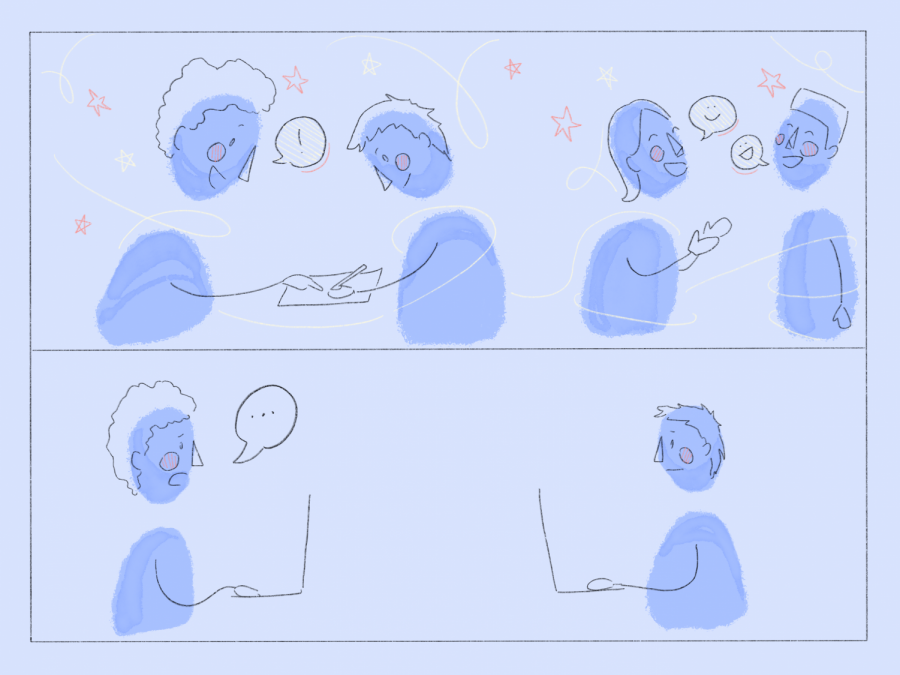CRLS Reopens Despite Backlash Among Teachers Union Shared Across the Country
February 26, 2021
As March 1st rapidly approaches, CRLS is preparing for wide-scale in-person learning for the first time in nearly a year. With the cooperation of educators and the school district, the transition is likely to be much smoother than in other districts. Similar attempts to return to school across the country have resulted in backlash, not as much from students or parents, but from teachers.
Most notably, Chicago Public School (CPS) teachers have been vocal about their concerns with in-person learning. Backed by the teacher’s union, CPS teachers refused to attend in-person classes and chose to remain online instead. The city’s board of education then threatened to lock teachers out of online classrooms, to which CPS teachers responded by announcing they would go on strike if the city board went through with that proposal. On February 7th, the teacher’s union and the city board reached an agreement.
The tensions between teacher’s unions and school districts are not just occurring in other states. Here in Massachusetts, the Boston Teachers Union voted that they had “no confidence” in Boston Public Schools superintendent Brenda Cassellius over her role in reopening schools. The vote was overwhelming, “97.5 percent of the more than 1,300 members who turned out for the virtual meeting endorsed the no-confidence vote.” The president of the Boston teachers union, Jessica Tang, has been an outspoken leader against the school district, saying, “We have bent over backward since schools closed in the spring to help the district and they have not wanted to meet and work with us. What is most frustrating is that we want what’s best for students and the plans could have been better for students if they listened to us from the start.” Cassellius is one of at least six superintendents to receive a no-confidence vote in Massachusetts so far. Kenneth Salim, the superintendent of the Cambridge Public School District, is among those six, however, the no-confidence vote has not prevented the transition to in-person learning in Cambridge.
At CRLS, opinions among both students and teachers are mixed about the return. Only 640 of the 1,950 students at Rindge will be going back in person on March 1st, roughly one third of the student body. Teachers are not required to return to school, and many have chosen to opt-out for medical or logistical reasons.
Mr. Benjamin Cohen, a history teacher at CRLS who will be attending in-person learning, has not been satisfied with online classes. He told the Register Forum, “So much of teaching and learning is relationships…Those are really hard to build online.” Mr. Cohen also mentions that “as a staff … I think we’ve done a really cool job trying, but building skill requires those relationships.” Because of this, Mr. Cohen states that he “personally [feels] really inadequate as a teacher online.”
Math teacher Mr. Hans-Bernard Manaligod agrees with Mr. Cohen’s assessment, saying, “The physical interaction between students [is lacking]. In my usual class, the kids are sitting in groups where they exchange papers, talk to each other … they show each other their answers, it’s a lot of collaborative group work in the environment I used to teach at.” However, Mr. Manaligod is concerned that this issue will not be fixed with social distancing regulations still in effect, he says: “Even though we’re physically in the classroom, I still can’t do collaborative group work.”
Ms. Emily Houston, a CRLS librarian, will not be going back on the 1st due to medical reasons, as well as safety concerns for students. She understands the precautions the school is taking to make in-person learning as successful as possible, but she believes that “everyone has a different definition of safe; it’s impossible to make everyone comfortable.” She also hopes for better protections for students, stating, “Teachers don’t just care about their own health, they care about their students’ health as well.”
Ms. Houston’s viewpoint appears to be the consensus among most teachers outside of the Cambridge Public School District. The push for in-person learning still has yet to be successful country-wide, with three quarters of urban school districts offering only online education. However, with the Cambridge Public School District (CPSD) implementing strict precautions and the willingness of teachers to get back into the classroom, CPSD will soon be a part of the 25%.











